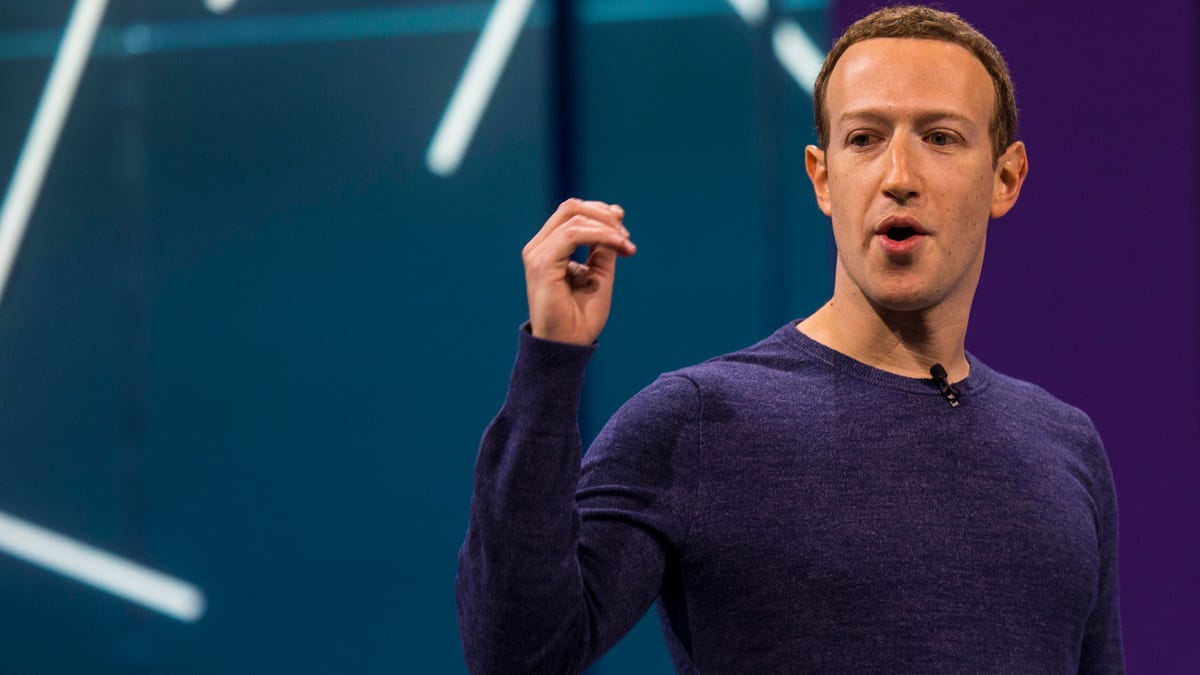Facebook expects to test privacy tool to 'clear history' in spring 2019
The social network faced challenges while building the tool.

Facebook CEO Mark Zuckerberg speaks at the company's annual developer conference.
Facebook said Monday a promised privacy tool that will allow users to clear their browsing history on the social network is still in the works but isn't expected to launch until next year.
In May, Facebook CEO Mark Zuckerberg announced it was building a feature called "clear history" that would let users see what apps and websites they've interacted with and clear that information from their account.
But as Recode pointed out, the tool still hasn't been released seven months after Zuckerberg unveiled the company was building the feature.
"We want to build something that's truly helpful for everyone on Facebook," David Baser, Facebook's director of product management and leader of its privacy and data use team, said in a statement. "We'd rather take the time to get it right than rushing something out."
Facebook intends to start testing the tool in Spring 2019, Baser said. But with nearly 2.3 billion users on the social network, the tech firm has run into challenges while building the privacy feature, he said. Facebook, for example, organizes web browsing data by date but "clear history" organizes them by user profile. That makes it difficult for Facebook to find the browsing data tied to an individual user.
"To do this instantaneously for people so they can control it, has meant we've needed to build a new way for our systems to process information," Baser said.
Facebook has been under pressure to do more to protect user privacy after a data privacy scandal came to light in March. At that time, Cambridge Analytica, a UK consulting firm, was found to have harvested the personal data of roughly 87 million Facebook users without their permission.
But Facebook's seemingly endless series of scandals has been chipping away at user trust. Last week, the company announced that a bug could've exposed the private photos of up to 6.8 million users to outside developers.
CNET's Holiday Gift Guide: The place to find the best tech gifts for 2018.
Cambridge Analytica: Everything you need to know about Facebook's data mining scandal.

